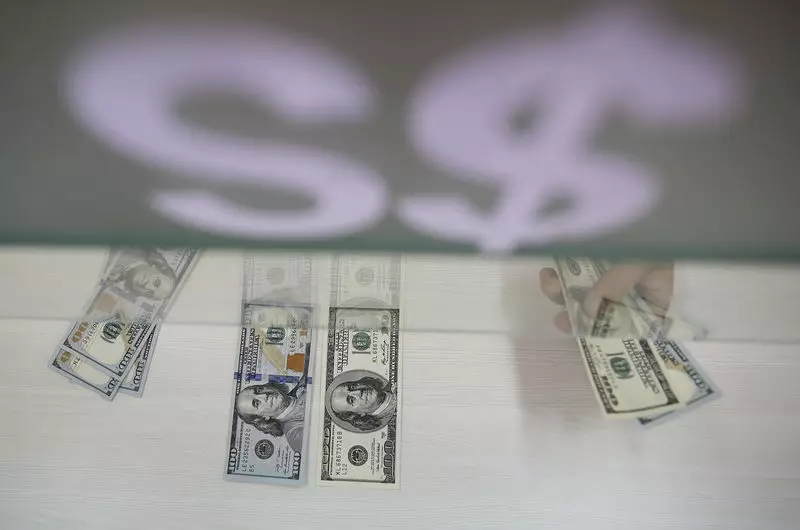The cryptocurrency landscape is in a state of flux, with evolving policies and regulatory frameworks that shape the industry’s trajectory. As President-elect Donald Trump gears up for his return to office, indications suggest a significant shift in the U.S. government’s approach toward digital assets. This article explores the implications of Trump’s anticipated executive actions, examining both the potential benefits and the risks associated with such regulatory changes.
Reports indicate that Trump is inclined to leverage his executive powers to alleviate regulatory concerns that cryptocurrency companies face. His administration plans to establish a cryptocurrency advisory council comprised of approximately 20 members, a concept he suggested during his 2016 campaign. This council could play a pivotal role in shaping policies conducive to the growth and adoption of digital currencies, signaling a stark divergence from the regulatory stance of the outgoing Biden administration.
By initiating these changes through executive orders, Trump aims to project a pro-crypto sentiment. The plan reportedly includes directing the Securities and Exchange Commission (SEC) to dismantle certain accounting guidelines, specifically the “SAB 121” guidance from 2022. This guidance has been viewed as a hindrance for financial institutions attempting to hold cryptocurrencies, thus exacerbating the challenges faced by crypto companies.
One of the more contentious elements of Trump’s plan involves the potential termination of “Operation Choke Point 2.0.” This initiative, described by crypto executives as a deliberate endeavor by banking regulators to marginalize cryptocurrencies, has been met with widespread criticism from industry advocates. While regulators deny actively obstructing crypto enterprises, the perception of an adversarial relationship between traditional banking and the crypto sector remains.
If Trump succeeds in dismantling this operation, it could open the floodgates for increased interaction between banks and cryptocurrency firms, fostering a more favorable financial ecosystem for digital assets. However, the criticism levelled against the industry, particularly in light of recent fraud cases involving high-profile figures such as Sam Bankman-Fried, looms large. These incidents raise legitimate concerns about the inherent risks associated with cryptocurrencies and the need for a balanced regulatory approach.
The anticipated shift from Trump’s administration highlights a stark contrast to the regulatory posture taken by President Joe Biden, whose administration has aggressively pursued actions to protect citizens against potential fraud and financial malfeasance linked to crypto ventures. Biden’s regulatory framework has emphasized caution, leading to legal actions against major exchanges like Coinbase and Binance, reflecting a prioritization of consumer protections over industry expansion.
This diverging path raises critical questions about the future of cryptocurrency regulation in the U.S. Will Trump’s calls for deregulation stimulate innovation and integration of digital currencies into the mainstream? Or will it foster an environment susceptible to fraud and malfeasance, undermining the trust that crypto seeks to establish in traditional financial markets?
As the U.S. navigates its regulatory landscape, it is essential to consider the impact of its policies on the global stage. Countries around the world are wrestling with how best to regulate cryptocurrencies, and U.S. policy shifts may set precedents that influence global standards. An aggressive pro-crypto stance may attract innovation and investment, but it could also lead to regulatory arbitrage, where companies leverage the lax U.S. framework to escape more stringent regulations elsewhere.
Moreover, with many crypto stakeholders backing Trump, the potential for conflicts of interest arises, further complicating the regulatory landscape. The presence of powerful lobbyists in Washington may tilt the scales towards an overly favorable environment for crypto firms, potentially at the expense of consumer protections.
As Trump prepares to assume office once again, the projected changes in cryptocurrency regulation cannot be understated. An entrepreneurial approach that promotes digital assets may invigorate the market, but it must tread carefully to avoid the pitfalls of unchecked expansion and potential fraud. The balance between innovation and regulation will be crucial in determining the trajectory of cryptocurrency adoption in the United States. The coming weeks will be pivotal in shaping this new chapter, emphasizing the need for cautious optimism as the industry anticipates regulatory clarity in a rapidly evolving landscape.

